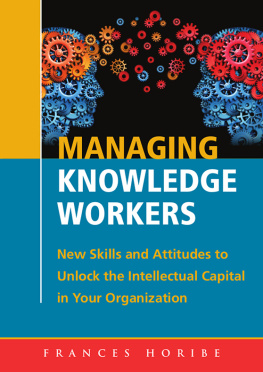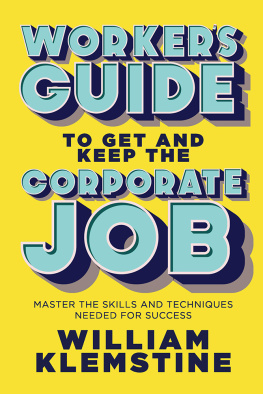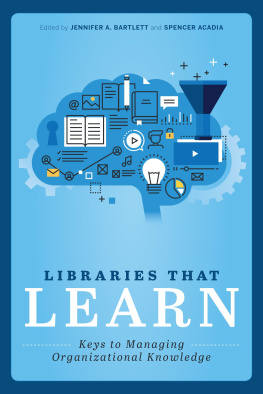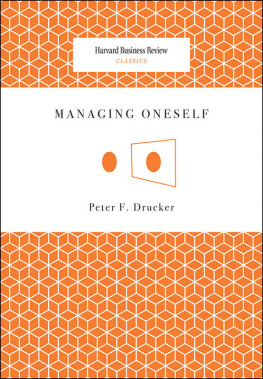Frances Horibe - Managing Knowledge Workers: : New Skills and Attitudes to Unlock the Intellectual Capital in Your Organization
Here you can read online Frances Horibe - Managing Knowledge Workers: : New Skills and Attitudes to Unlock the Intellectual Capital in Your Organization full text of the book (entire story) in english for free. Download pdf and epub, get meaning, cover and reviews about this ebook. year: 2015, publisher: VisionArts International Inc., genre: Business. Description of the work, (preface) as well as reviews are available. Best literature library LitArk.com created for fans of good reading and offers a wide selection of genres:
Romance novel
Science fiction
Adventure
Detective
Science
History
Home and family
Prose
Art
Politics
Computer
Non-fiction
Religion
Business
Children
Humor
Choose a favorite category and find really read worthwhile books. Enjoy immersion in the world of imagination, feel the emotions of the characters or learn something new for yourself, make an fascinating discovery.
- Book:Managing Knowledge Workers: : New Skills and Attitudes to Unlock the Intellectual Capital in Your Organization
- Author:
- Publisher:VisionArts International Inc.
- Genre:
- Year:2015
- Rating:3 / 5
- Favourites:Add to favourites
- Your mark:
Managing Knowledge Workers: : New Skills and Attitudes to Unlock the Intellectual Capital in Your Organization: summary, description and annotation
We offer to read an annotation, description, summary or preface (depends on what the author of the book "Managing Knowledge Workers: : New Skills and Attitudes to Unlock the Intellectual Capital in Your Organization" wrote himself). If you haven't found the necessary information about the book — write in the comments, we will try to find it.
Managing Knowledge Workers provides practical, doable strategies for managing, motivating, and retaining knowledge workers, without breaking the bank. Managing Knowledge Workers focuses not just on understanding the value of knowledge in your organization, but on managing the human side of intellectual capital.
Shows how to use other more powerful levers than money to attract and retain the knowledge workers.
Provides hands-on advice on creating the right culture and environment through communication, involvement, consultation, and teamwork.
Provides practical advice on how to handle new management challenges: how to manage knowledge you dont understand, how to encourage new knowledge to come forward, and much more.
Features sample dialogues that offer concrete approaches to dealing with difficult real-life situations
With an insightfully crafted guide to the implementation of intellectual capital concepts, Frances Horibe has made a tremendous contribution to leveraging people and their knowledge in the context of the new economy.
Hubert Saint-Onge
Senior Vice President, Strategic Capabilities
The Mutual Group
Managing Knowledge Workers is an excellent reference guide, addressing the challenges all business leaders face in maximizing the creation of shareholder wealth by harnessing the human capital of a capable and committed workforce.
Gordon J. Feeney
Vice Chairman
Royal Bank Financial Group
Provides a roadmap to optimizing our knowledge workers and maximizing our technology investment. Should be read by managers at all levels of the organization.
Ken Henry
Vice President, Business Excellence
Manulife Financial
Weve finally figured out that the proxy for business success is customer loyalty. Managing Knowledge Workers is essential reading for those wanting to understand how to ensure the loyalty of those people essential to achieving customer loyalty--our employees!
David Carlson
A VP, Customer Care
Newbridge Networks
Frances Horibe: author's other books
Who wrote Managing Knowledge Workers: : New Skills and Attitudes to Unlock the Intellectual Capital in Your Organization? Find out the surname, the name of the author of the book and a list of all author's works by series.








